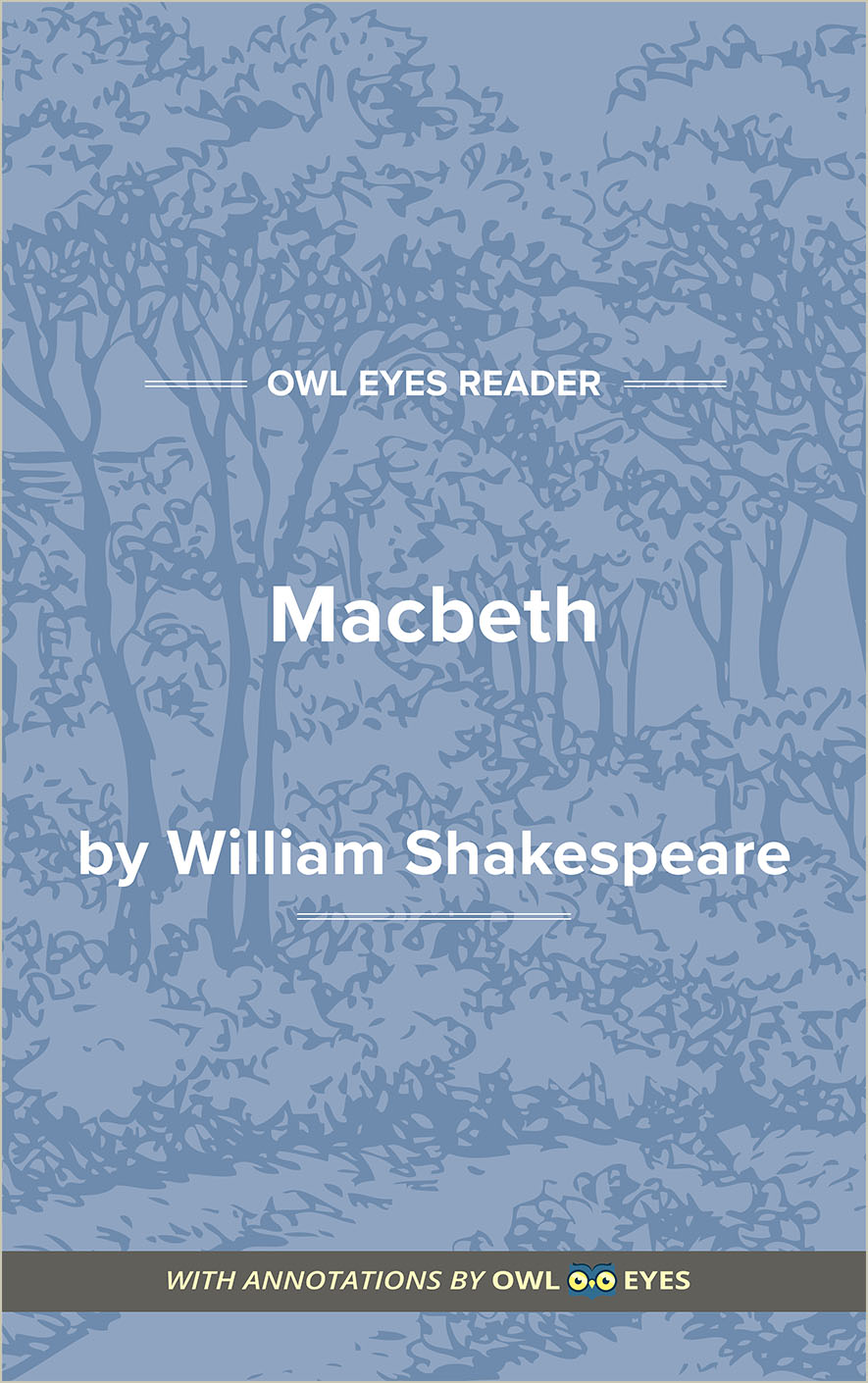Analysis Pages
Quote Analysis in Macbeth
Quote Analysis Examples in Macbeth:
Act I - Scene I
🔒"When shall we three meet again..." See in text (Act I - Scene I)
Act I - Scene III
🔒"My thought, whose murder yet is but fantastical,(150) Shakes so my single state of man that function Is smother'd in surmise, and nothing is But what is not...." See in text (Act I - Scene III)
Act I - Scene IV
🔒"That very frankly he confess'd his treasons, Implored your highness’ pardon, and set forth A deep repentance. Nothing in his life Became him like the leaving it;..." See in text (Act I - Scene IV)
Act I - Scene V
🔒"unsex me here..." See in text (Act I - Scene V)
"Yet do I fear thy nature; It is too full o’ the milk of human kindness..." See in text (Act I - Scene V)
Act I - Scene VII
🔒"I have no spur(25) To prick the sides of my intent, but only Vaulting ambition, which o'erleaps itself And falls on the other—..." See in text (Act I - Scene VII)
"But screw your courage to the sticking-place, And we'll not fail...." See in text (Act I - Scene VII)
"this blow Might be the be-all and the end-all here..." See in text (Act I - Scene VII)
Act II - Scene I
🔒"Words to the heat of deeds too cold breath gives. A bell rings. I go, and it is done: the bell invites me...." See in text (Act II - Scene I)
"Is this a dagger which I see before me, The handle toward my hand..." See in text (Act II - Scene I)
Act II - Scene II
🔒"Infirm of purpose!..." See in text (Act II - Scene II)
"This is a sorry sight...." See in text (Act II - Scene II)
"No, this my hand will rather The multitudinous seas incarnadine,..." See in text (Act II - Scene II)
Act II - Scene III
🔒"Knock, knock! Who's there, in th’ other devil's name?..." See in text (Act II - Scene III)
Act III - Scene II
🔒"What's done is done...." See in text (Act III - Scene II)
"After life's fitful fever he sleeps well..." See in text (Act III - Scene II)
Act IV - Scene I
🔒"Fillet of a fenny snake, In the cauldron boil and bake; Eye of newt and toe of frog, Wool of bat and tongue of dog,(15) Adder's fork and blind-worm's sting, Lizard's leg and howlet's wing, For a charm of powerful trouble, Like a hell-broth boil and bubble...." See in text (Act IV - Scene I)
" Something wicke..." See in text (Act IV - Scene I)
"What, will the line stretch out to the crack of doom?..." See in text (Act IV - Scene I)
" Double, double, toil and trouble;(10) Fire burn and cauldron bubble..." See in text (Act IV - Scene I)
Act IV - Scene III
🔒"At one fell swoop?..." See in text (Act IV - Scene III)
Act V - Scene I
🔒"Out, damned spot!..." See in text (Act V - Scene I)
Act V - Scene III
🔒"Must minister to himself...." See in text (Act V - Scene III)
Act V - Scene V
🔒"Tomorrow, and tomorrow, and tomorrow Creeps in this petty pace from day to day To the last syllable of recorded time; And all our yesterdays have lighted fools The way to dusty death. Out, out, brief candle!(25) Life's but a walking shadow, a poor player That struts and frets his hour upon the stage And then is heard no more. It is a tale Told by an idiot, full of sound and fury, Signifying nothing..." See in text (Act V - Scene V)
"(30)..." See in text (Act V - Scene V)

